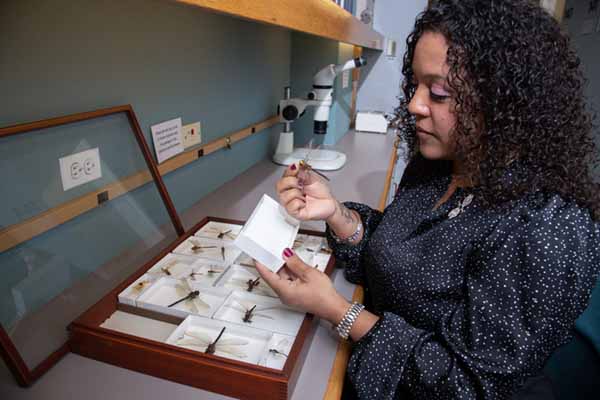
Dragonflies and damselflies (Odonata) and butterflies and moths (Lepidoptera) are among the most beautiful flying insects. Their evolutionary history is complex. Dr. Ware will discuss the past 400 million years of winged insects, focusing in particular on the 6500 species of Odonata, which began diversifying around 250 million years ago, and the 160,000 species of Lepidoptera, which diversified around the same time—during the Late Carboniferous to Early Triassic. Over these millions of years dragonflies and damselflies have become amazing fliers, ambitious predators, and colorful communicators. Butterflies and moths have evolved several feeding styles and pollinator relationships with many angiosperms.

Dr. Jessica Ware is an associate curator in invertebrate zoology at the American Museum of Natural History. Dr. Ware’s research focuses on the evolution of behavioral and physiological adaptations in insects, with an emphasis on how these occur in Odonata (dragonflies and damselflies) and Dictyoptera (termites, cockroaches, and mantises). She holds a B.Sc. from the University of British Columbia in Canada and a Ph.D. from Rutgers, New Brunswick. Dr. Ware is the past president of the Worldwide Dragonfly Association and serves as current president of the Entomological Society of America. She was recently awarded a PECASE (Presidential Early Career Award for Scientists and Engineers) medal from the U.S. government for her work on insect evolution.

